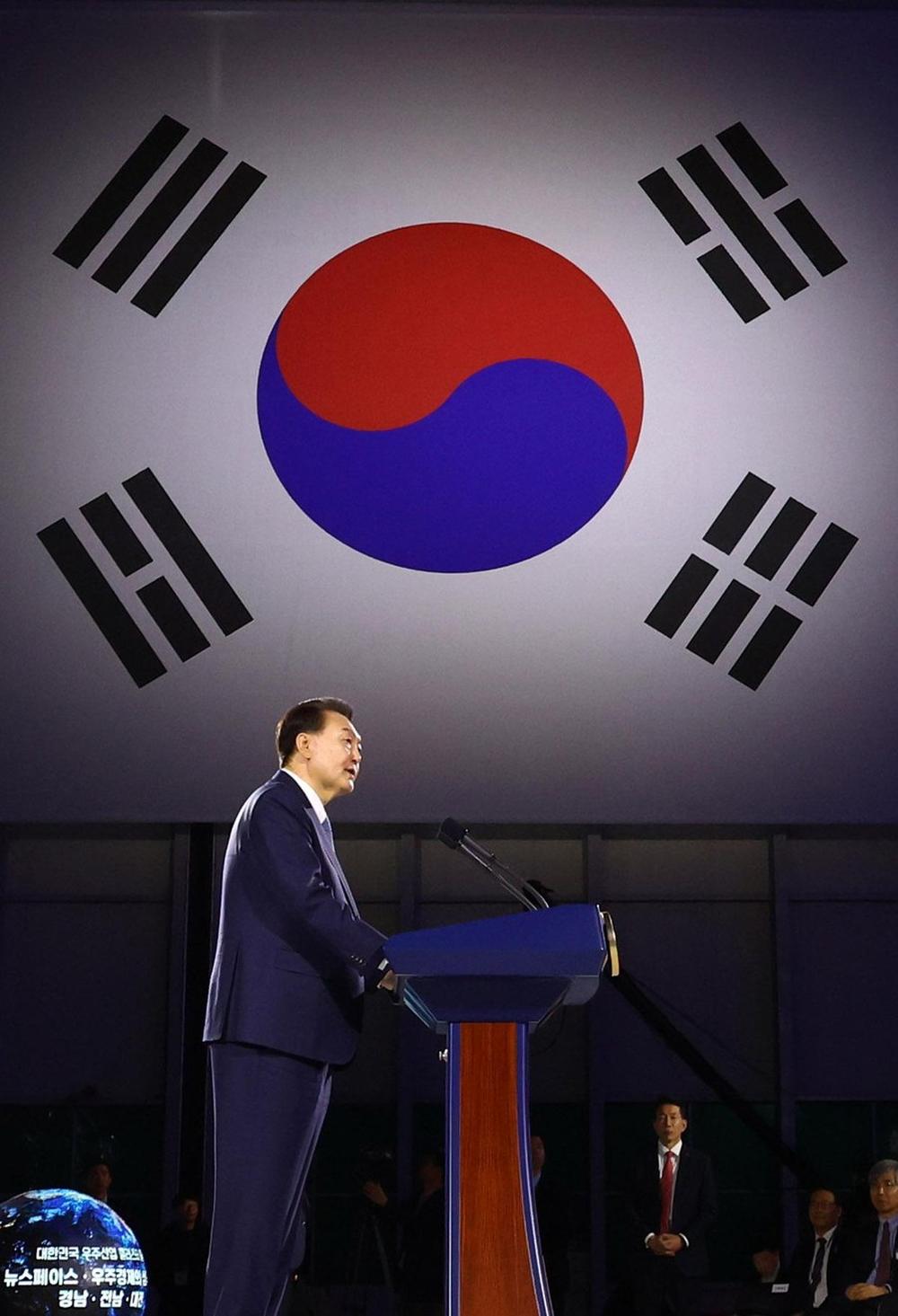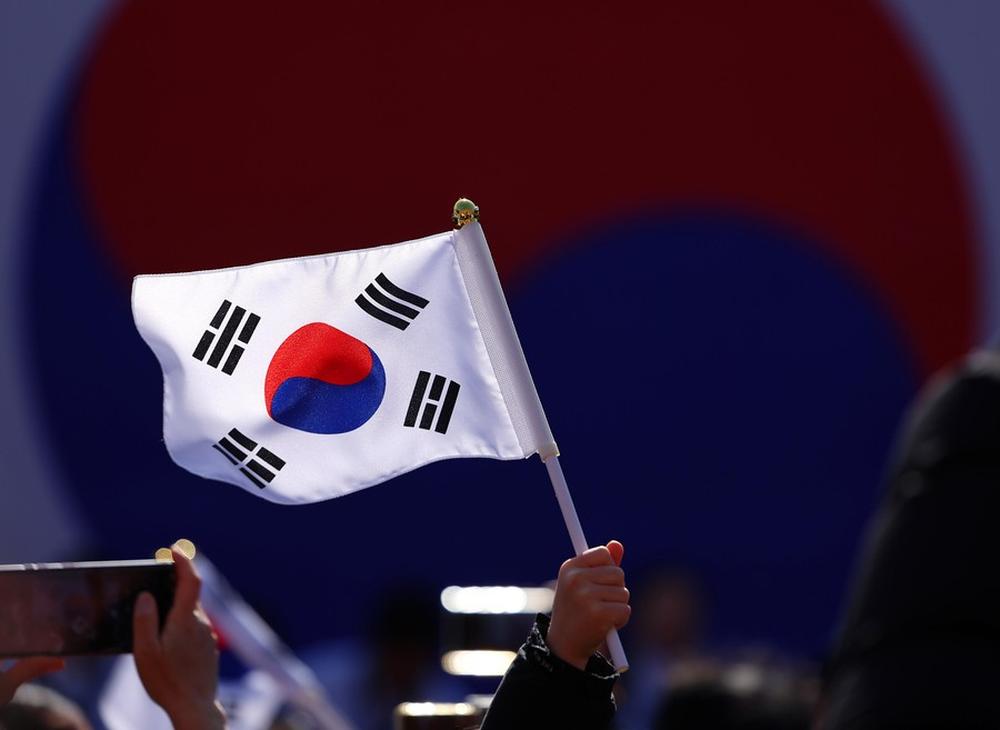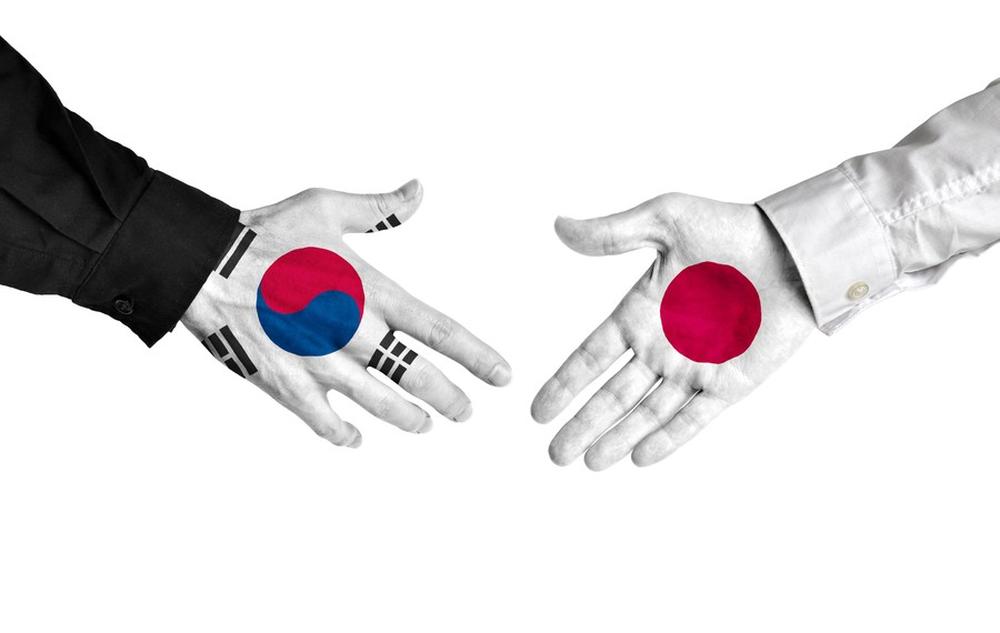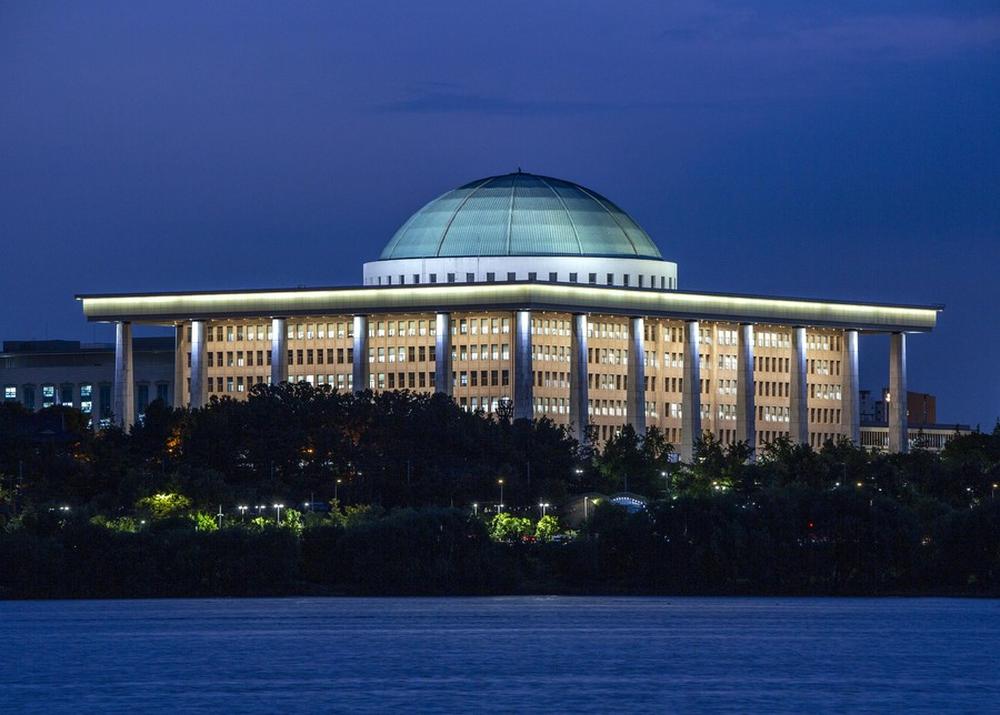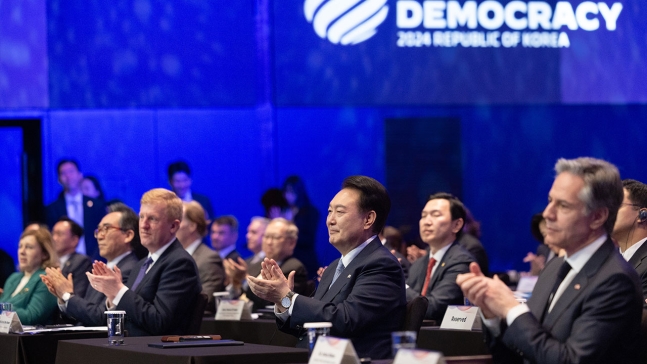- #Global Issues
- #South Korea
- #US Foreign Policy
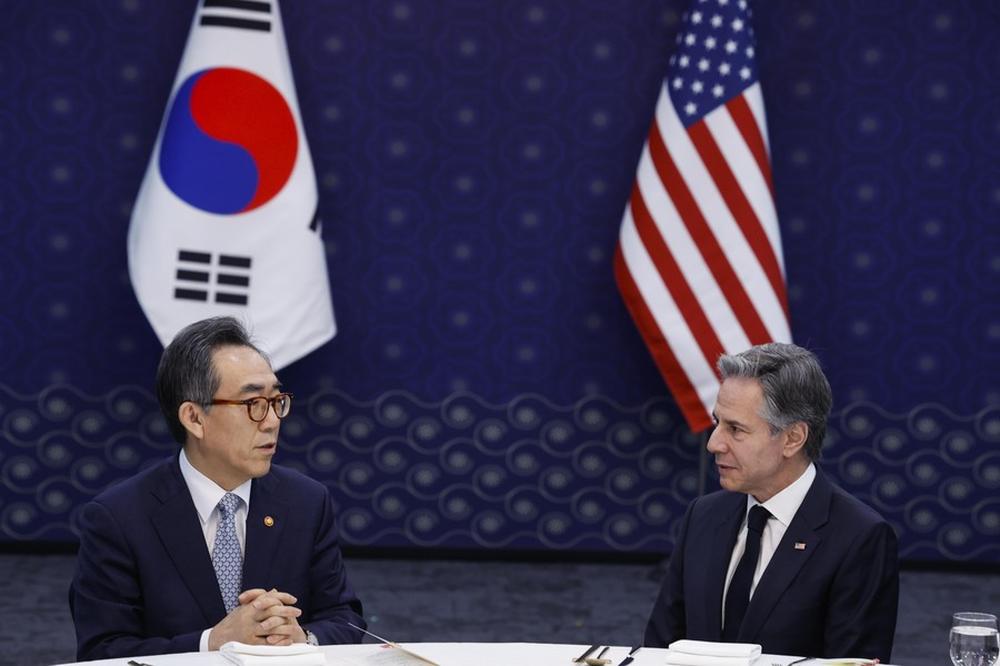
▶ Does the World need a liberal democratic torchbearer? Is South Korea willing and capable enough to serve as a torchbearer? If then, how?
▶ South Korea as a robust strong country should make value-oriented diplomacy consolidated by linking it with its grand strategy, leading it to be more polished and institutionalized. This linking process matters because it can offset the vulnerability of value-oriented diplomacy, which is that it could be changed even on slight changes in international situations and domestic political power.
Introduction: South Korea and Promoting Democracy in the World
What drives South Korea to assume the role of a torchbearer in promoting democracy in the world? First of all, the demand for this leading role is on the rise because democracy is on the retreat internationally. Back in 1991 when the Cold War was gone away, democracy was seen as an eternal winner, without a challenger. Francis Fukuyama defined this outlook as “the End of History.” However, this expected hope did not last long as shown by the rise of authoritarians in the world as well as the empty hand of the Arab Spring. Second, South Korea’s expected role is spurred by its unique performance. Just 70 years ago, South Korea remained neither democratic nor prosperous. While struggling with the Korean War invaded by North Korea, South Korea was in a situation where it was not even possible to eat regularly, let alone seek values such as democracy. However, South Korea won the war with the help of international society, particularly the United Nations Command created by the United Nations Security Council. Thus, freedom was preserved in South Korea which served as a stepping stone to make itself developed and democratic. As of 2024, South Korea rose to the 10th largest economy and is ranked as the 5th strongest military power in the world.
This rough but successful story of South Korea provides international society with a role model, particularly in the era of a transitional international order and a declining democracy. Meanwhile, South Korea’s status alone is not enough to play a role as a torchbearer. Making it done requires both capability and willingness. To put it another way, the South Korean government should be armed with bearing responsibility to play a leading role in promoting democracy. Meanwhile, the current ROK administration has seen beyond the Korean Peninsula while laying out outward policies such as GPS (Global Pivotal State) diplomacy and its own Indo-Pacific Strategy. This outward posture encourages South Korea to willingly assume the role of a liberal democratic torchbearer.
The International Challenges Now: Answering the Why Question
What drives South Korea to play as a liberal democratic torchbearer regarding international challenges? Under the New Cold War mechanism, the world is divided into two groups: democracy and autocracy. Although this division is far from the Cold War-style bloc, growing competition between the two major leagues is noteworthy in the world. Aside from the two leagues, the Global South is also on the rise, which makes it hard to clearly define the current international system. Meanwhile, liberal democratic values are not fully observed in the Global South as well as the league of autocracy. To top it off, liberal democratic values are treated less importantly than before even in the league of democracy. In this vein, if this trend advances without any remedies, the world is most likely to fail to preserve freedom. What matters is that freedom should not be taken for granted any longer, which means passion and effort are required globally.
Likewise, the liberal international order is at stake as revisionists such as China, Russia, and North Korea attempt to change it into a new order. What the new international order looks like is not clear. Those attempts could lead to an illiberal international order, a power-dominant international order, or a totalitarian international order. Whatever it is called, it seems sure that this order is far from the world in which freedom and democracy are guaranteed. These international challenges encourage the U.S., a current status-quo power, to put more emphasis on preserving universal values and rules in the world. Meanwhile, this task cannot be accomplished by the U.S. alone. The U.S. needs a reliable partner that is particularly armed with both willingness and capability. This mechanism allowed South Korea to host the Second Summit for Democracy with four other cohosts including the U.S. in 2023. Furthermore, it drove South Korea to lead the Third Summit for Democracy as the host nation in 2024.
South Korea’s Willingness and Capability: Answering the How Question
The current ROK government is equipped with both the willingness and capability to take on the duty of a liberal democratic torchbearer. However, the willingness could be easily changed without a polished process depending on the transition of domestic political leadership. This possibility is particularly true because value-oriented diplomacy is hard to institutionalize or establish the diplomatic formula. The policy of promoting democracy in the world is connected to value-oriented diplomacy. Meanwhile, value-oriented diplomacy is seen easily as a policy which is conflicting with national interest-driven diplomacy. The latter policy could be at the forefront if domestic political leadership is changed or grand strategy is modified. Accordingly, why value-oriented diplomacy matters should be well explained to the South Korean domestic audience. In addition, the South Korean government should pay tremendous attention to seeking a synergetic zone between value-oriented diplomacy and national interest-driven diplomacy. Lastly, South Korea as a robust strong country should continue to consolidate value-oriented diplomacy by linking it with its grand strategy such as GPS diplomacy and its own Indo-Pacific Strategy, leading it to be more polished and institutionalized. These measures can be enhanced by identifying expected utilities from South Korea’s role as a liberal democratic torchbearer.
Conclusion: Seeking Expected Utilities and Synergetic Effects
Some pundits maintain that South Korea’s role as a liberal democratic torchbearer and value-oriented diplomacy is simply to waste time and money because those efforts do not contribute to national interests. This argument is shortsighted. Clarifying expected utilities can help South Korea continue its role as a liberal democratic torchbearer no matter what contingencies could be confronted. First, South Korea’s role as a torchbearer can contribute to stepping up the efforts to preserve a liberal international order across the board by providing expanded multilateral platforms like the Summit for Democracy. Second, when a liberal international order is guaranteed through a globally coordinated effort, South Korea can make its own prosperity sustainable. Third, the global coordinated efforts and guaranteed sustainable prosperity are most likely to enhance South Korea’s diplomatic leverage. Finally, this upgraded leverage can help bolster the support of the international society regarding South Korea’s policy to grapple with North Korean threats. These four expected utilities should be shared with the domestic audience. Moreover, the South Korean government should pay attention to making these expected utilities realized in the diplomatic and policy field through a pan-governmental effort. All in all, South Korea’s role as a liberal democratic torchbearer is expected to contribute to not only grappling with the crisis of democracy in the world but its own security and prosperity. This explains why value-oriented diplomacy meets national interest-driven diplomacy.
Dr. Ban, Kil Joo is the Project Manager of the International Organizations Center and Professor in charge of OGA (OnDream Global Academy) at Ilmin International Relations Institute, Korea University. He has a Ph.D. in Political Science, majoring in international relations from Arizona State University. Previously (2022-2023), he served as an Assistant Secretary to the ROK President for Foreign Affairs. His research areas are international security, the New Cold War, the U.S.-China competition, alliance, North Korea’s nuclear program, diplomatic strategy, and maritime security. Recently in 2020-2024 alone, he has written 53 academic papers, including 7 SSCI-indexed, 6 SCOPUS-indexed, and 40 KCI-indexed ones, including papers to be published.
